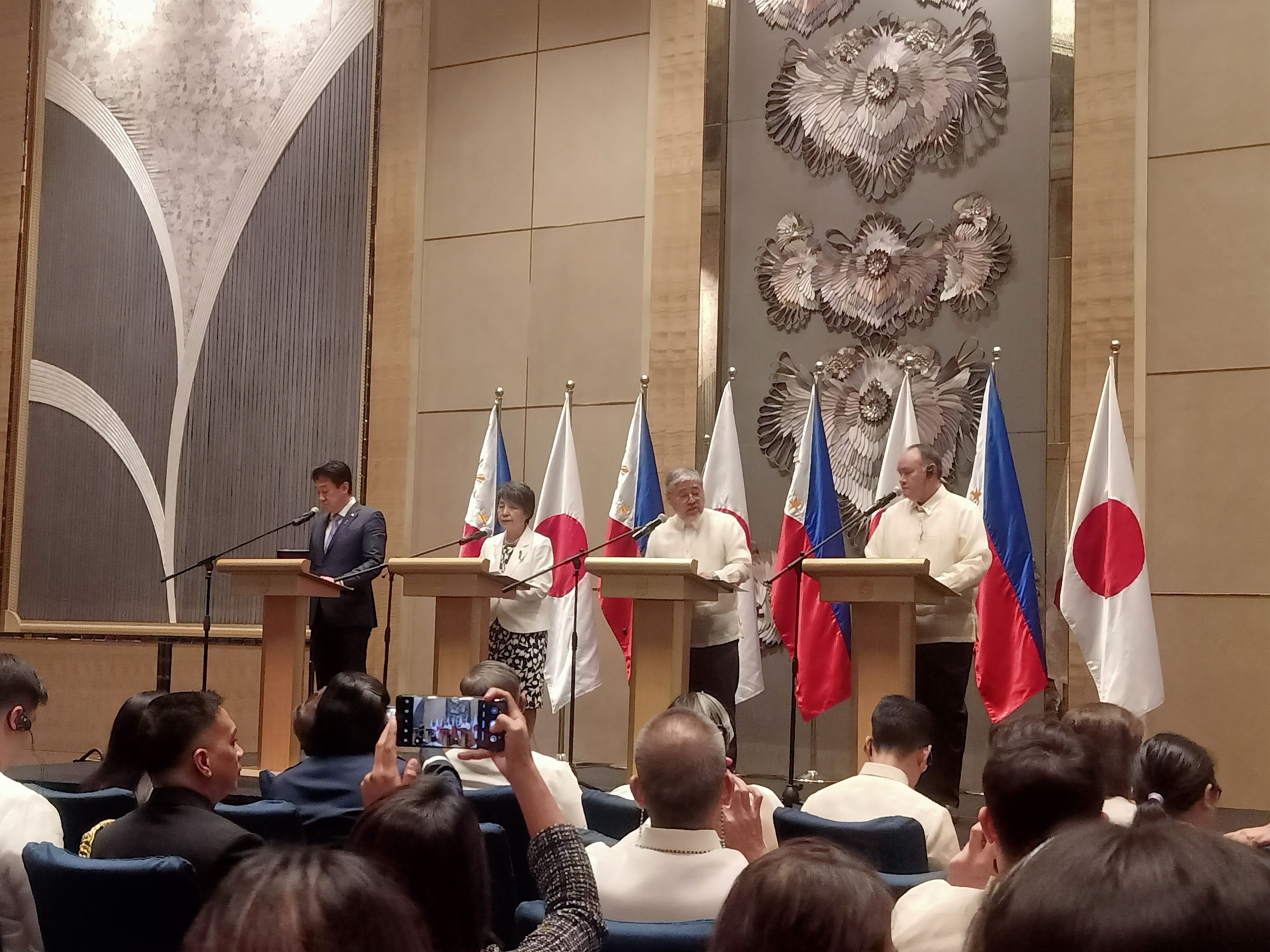RAA to enable bigger exercises between AFP, Japanese military

The newly signed Reciprocal Access Agreement (RAA) will pave the way for the conduct of bigger military exercises between the Philippines and Japan.
Department of National Defense (DND) Sec. Gilberto Teodoro Jr. said this on Monday, July 8, as he clarified that the RAA has “no significant difference” with the Philippines’ Status of Visiting Forces Agreement (SOVFA) with Australia and Visiting Forces Agreement (VFA) with the United States.
“It is just tailored to conform to the requirements of domestic law of each country, that is the only difference. In essence, everything remains the same,” he said in a press conference in Taguig City on Monday, July 8, following the 2+2 Defense and Foreign Affairs Ministerial Meeting by the Philippines and Japan.
Signed by Teodoro and Japanese Foreign Minister Yoko Kamikawa in Malacañang on Monday, the RAA allows both countries to send military forces to each other’s territory for joint exercises. The ceremony was witnessed by President Marcos Jr., Department of Foreign Affairs Sec. Enrique Manalo and Japanese Minister of Defence Minoru Kihara.
“The way forward would be for our armed forces to come up with mutually acceptable confidence building measures between and amongst themselves which will include greater training and interoperability exercises,” Teodoro noted.
Prior to this, the AFP and JSDF have only engaged in humanitarian assistance and disaster response (HADR) trainings as well as maritime cooperative activities (MCAs).
Bigger military trainings between the Philippines and Japan would be crucial in enhancing the former’s deterrence capabilities amid China’s aggression in the West Philippine Sea (WPS).
Teodoro said the RAA will put flesh into the Philippines and Japan’s already robust bilateral relations, and lead to greater interoperability, exchanges of information and other cooperative activities in adherence to the rules-based international order and upholding of the essence, principles and concepts of international law, particularly the United Nations Convention on the Law of the Sea.
On the humanitarian assistance and disaster response (HADR) side, Manila and Tokyo can also increase their partnerships and cooperation in different systems through the RAA.
“It will be a great step towards the concretization of trust and now comes the work of building confidence among the members of the Japan Self Defense Force and the Armed Forces of the Philippines,” he said.
“We look forward to increase cooperation and work in order to bring this agreement not merely in exchanges of signed deeds but in actual work and actions in order to bring greater stability in this part of the world,” Teodoro said.
Read: Signing of RAA gives 'holistic dimension' to robust PH-Japan ties – Teodoro
Kamikawa and Kihara, on the other hand, both expressed support for the Philippines’ position in the WPS, stating that the violent resupply mission in Ayungin (Second Thomas) Shoal on June 17 “increases tension in the region.”
Meanwhile, National Security Adviser (NSA) Eduardo Año hailed the signing of the RAA as a “significant stride” in the strategic partnership between Manila and Tokyo.
“This agreement not only strengthens our bilateral defense relations but also enhances our ability to address emerging security threats,” he said.